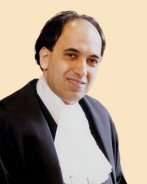致謝詞

Mr Chancellor, distinguished guests, teachers and graduates who have together achieved so much, proud parents and grandparents, ladies and gentlemen –
It is with the deepest gratitude that we three Honorary Graduands accept the Honorary Doctorates conferred upon us. The honour so graciously extended to us is to be treasured. And so is the uplifting experience of being here among so many young people receiving their degrees in the presence of their justifiably proud friends and relations. An honorary degree is largely a reflection of the past. But the degrees so deservedly received by these young people constitute a promise for the future – a bright future. And that is why the three of us are so very gratified to be here among all of them and to become, in our own modest way, a part of their University.
If I am qualified to speak about anything at all, then that thing must be the law. But my career in the law is, for the most part although not entirely, behind me. So would I, in speaking of the law, be looking backwards rather than forwards? I hope not.
The law, for all its capacity to preserve what is worth preserving, has an at least equal capacity sometimes to adapt to a changing world and sometimes even to bring great change for the better to the world.
As to this last aspect of the law’s capacity, let me say a word on human rights. The Public Orator has, most eloquently as always, adverted to my views on the content of human rights. From what do such fundamental rights and freedoms spring? In my view, they are inherent in human beings and essential to human dignity. If that is so, then it must always have been so. What, therefore, is new about these fundamentals? The answer lies in the increased and ever-increasing appreciation of the law’s role in actively – and indeed pro-actively – promoting the practical application of these fundamental rights and freedoms in our daily lives.
In the field of judicially enforced human rights, the law has come a considerable way in recent times but still has a considerable way to go. What has driven – and will continue to drive – progress in this field? It is, I think, a constantly evolving and expanding belief that there are certain minimum entitlements which ordinary people can justifiably demand of government not only through the democratic process but through the judicial process as well – especially wherever and whenever there is a shortfall in democracy. This belief is by no means confined to lawyers. It exists – and exists equally – among all people who are dedicated to justice in how we treat one another.
The law will, I hope and trust, continue to protect those traditional human rights that consist of civil liberties, such as free speech – doing so in such new ways as new circumstances require. I also hope and trust that the law will develop ever more effective approaches and remedies directed to securing the practical application of more recently recognized human rights such as socio-economic rights. These have to do with, among many other things, adequate housing, which is a matter of acute concern all over the world, not least of all in Hong Kong.
Having spoken of the law in particular, let me now say something of a general nature. There is, I believe, one constant that is true of each and every form of human endeavour – whether it be sports, business, law or any of the vast variety of other ones. Success eludes everyone except those who put in every ounce of effort that they are capable of exerting. No matter what the path you choose, or chooses you, tasks of enormous importance and very considerable difficulty lie ahead. To have been in the presence of you dedicated, intelligent and hardworking young people has been an inspiration, for which the three of us are – and will always be – most grateful to all of you.




